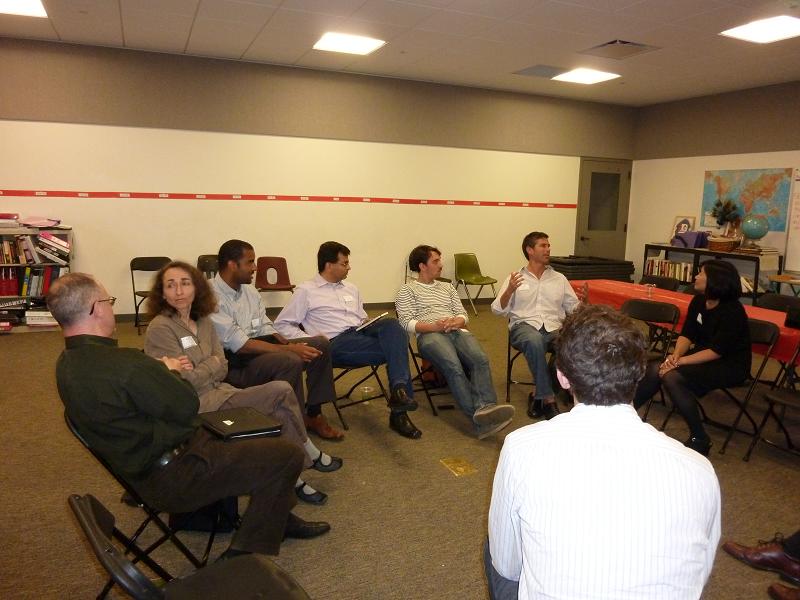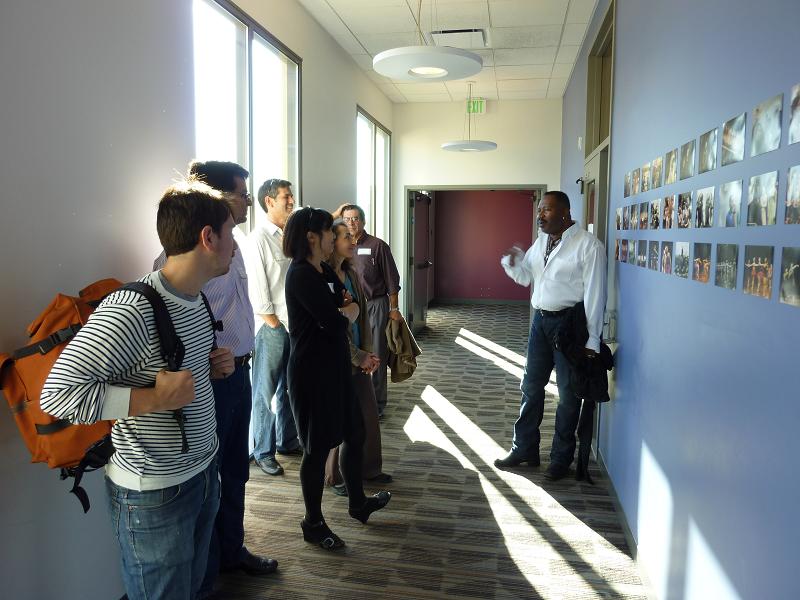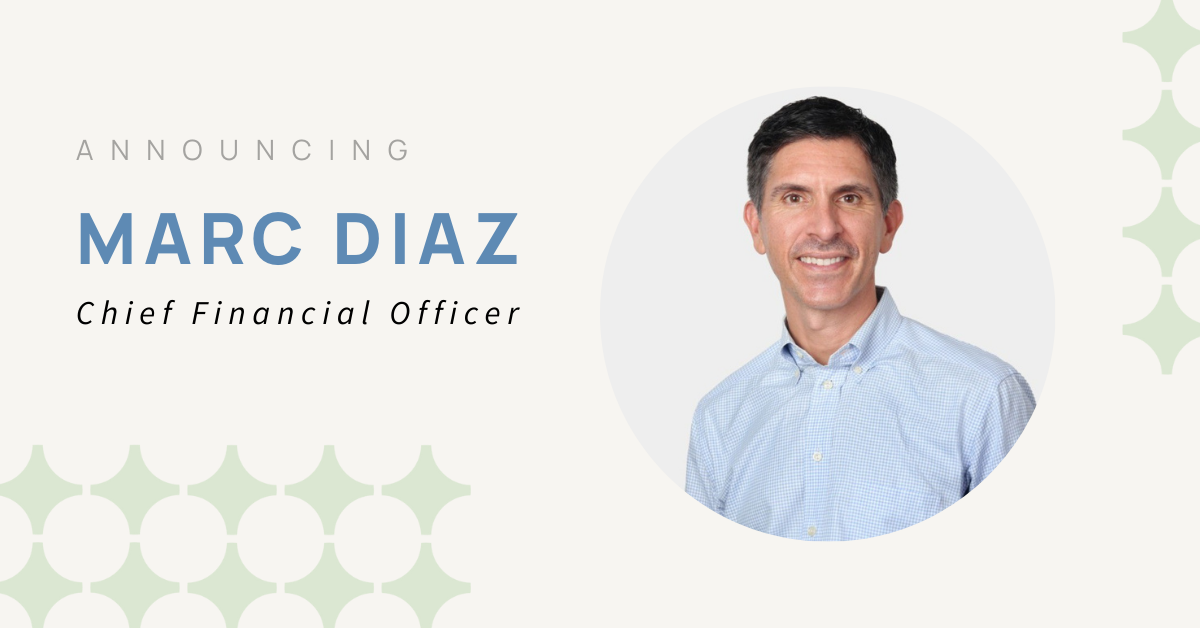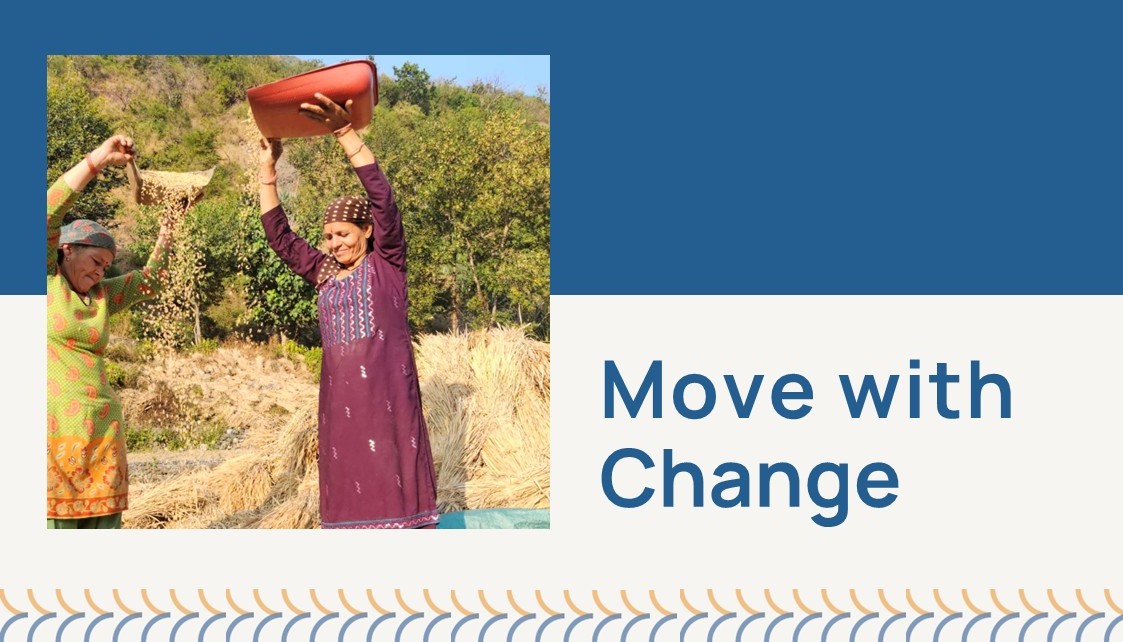Back in mid-September, we hosted our most recent quarterly pricing meeting with investors and borrowers of the RSF Social Investment Fund at borrower Oakland School for the Arts in downtown Oakland, CA. If you’ve missed our past posts on the subject, these meetings are opportunities for RSF investors and borrowers to take part in a face-to-face discussion about each others’ needs and goals in the context of resetting the Social Investment Fund’s current interest rate (which takes place on a quarterly basis, and in turn determines the current base rate for RSF borrowers). In attendance were borrower representatives: Praveen Madan, co-owner of Haight Booksmith, Mark Gunther, Chairman of Equal Access, and Antonette West, Director of Finance at Oakland School for the Arts. Representing the Social Investment Fund’s investors were a handful of Bay Area investors from a range of backgrounds including: a former sustainable products business owner now working as a consultant, a 25-year-old eco-product entrepreneur who has been an RSF investor for almost his entire life, and a former Waldorf-school parent who has been an RSF investor for the past three years.

Prior to the meeting, Ms. West led the group on a tour of Oakland School for the Arts (OSA), a tuition-free charter school that provides its students with conservatory-style training in the arts while maintaining a rigorous college-preparatory curriculum. Founded in 2000, the combination middle school and high school is located across three floors in the building of Oakland’s historic and recently renovated Fox Theater, which also serves as a venue for live student performances. During the tour, we got to see OSA’s own black box theater (which it uses for smaller performances), observe a drama class exercise, and speak with the high school dance instructor who talked about the emphasis he places on students enjoying their artistic pursuits while keeping the right focus on academics (we later learned his students average the highest GPA in the school). We also had the chance to meet the school’s executive director, Donn Harris, whose passion and commitment were abundantly evident in even just a few minutes of conversation.

After the tour, we reconvened in one of the school’s vocal music rooms to begin the pricing meeting. During the meeting, RSF staff provided background and answered questions about the purpose of the meeting, the relationship between our investor and borrower interest rates and their effect on RSF’s bottom line, and current market rates and conditions in the wider financial world. When it came time to ask participants how they felt about RSF’s current rate of 1% for investors and 5% for borrowers, everyone quickly agreed that the rates seemed very good given market conditions, the social and environmental impact that investors were supporting, and the values-driven commitment that RSF brings to its borrowers. Based on this feedback, as well as general market and economic conditions, the Social Investment Fund pricing committee (which meets after the pricing meeting to make the official decision about the fund’s rates) elected to keep investor and borrower interest rates steady for the fourth quarter.
Some of the most interesting conversation of the afternoon, however, was not explicitly about interest rates at all (perhaps due to the fact that RSF’s rates compare quite favorably in this period of low interest rates and tight credit). A borrower asked the investors if they would be more interested in a fund that supported a specific RSF focus area rather than a mix of all three. One investor said she wouldn’t want to have the burden of choosing which focus area was most important to her, and another said he wouldn’t support it because he thought such an approach would likely entail higher costs for RSF. One of the investors then asked the borrowers to comment on how satisfied they were with their loans from RSF and how they felt it compared to what they could get from a bank. To which Mark Gunther of Equal Access answered that there was no comparison because a bank would not give his organization a loan without cumbersome personal guarantees that would essentially negate the value of the loan. Praveen Madan of Haight Booksmith, on the other hand, said that they could have gotten a bank loan at just about the same terms as their RSF loan, but that they chose to go with RSF because they felt the strong values alignment would be important if they were to ever encounter financial difficulties. Antonette West of Oakland School for the Arts said that RSF’s terms were better than what they saw from other non-profit lenders, but that they also felt RSF’s team was a “warmer” group that had a better understanding of their organization.
At another point, a borrower asked to hear more from the investors about their motivations for investing with RSF. While everyone said something about the desire to align their money with their values, one of the newer investors in the room said that he also saw it as an opportunity to experiment with a different way of working with money, one that challenged his and his family’s traditional approach to investing, and one that he could hopefully expand upon in the future. This is truly the perspective that we hope to cultivate through everything that we do at RSF. Over the long term our rates will sometimes seem great and sometimes not so great, but if participating as an RSF investor helps to open up and challenge one’s assumptions about the purpose and possibilities of our financial relationships, then that is the best return that we can offer.
By Gary Sprague
Gary Sprague is the former Communications Manager at RSF Social Finance.


